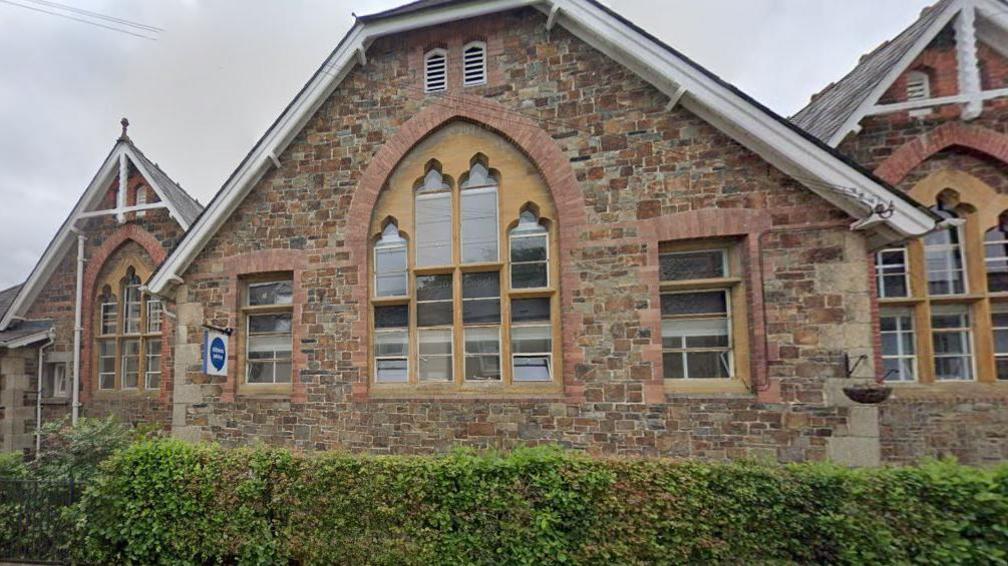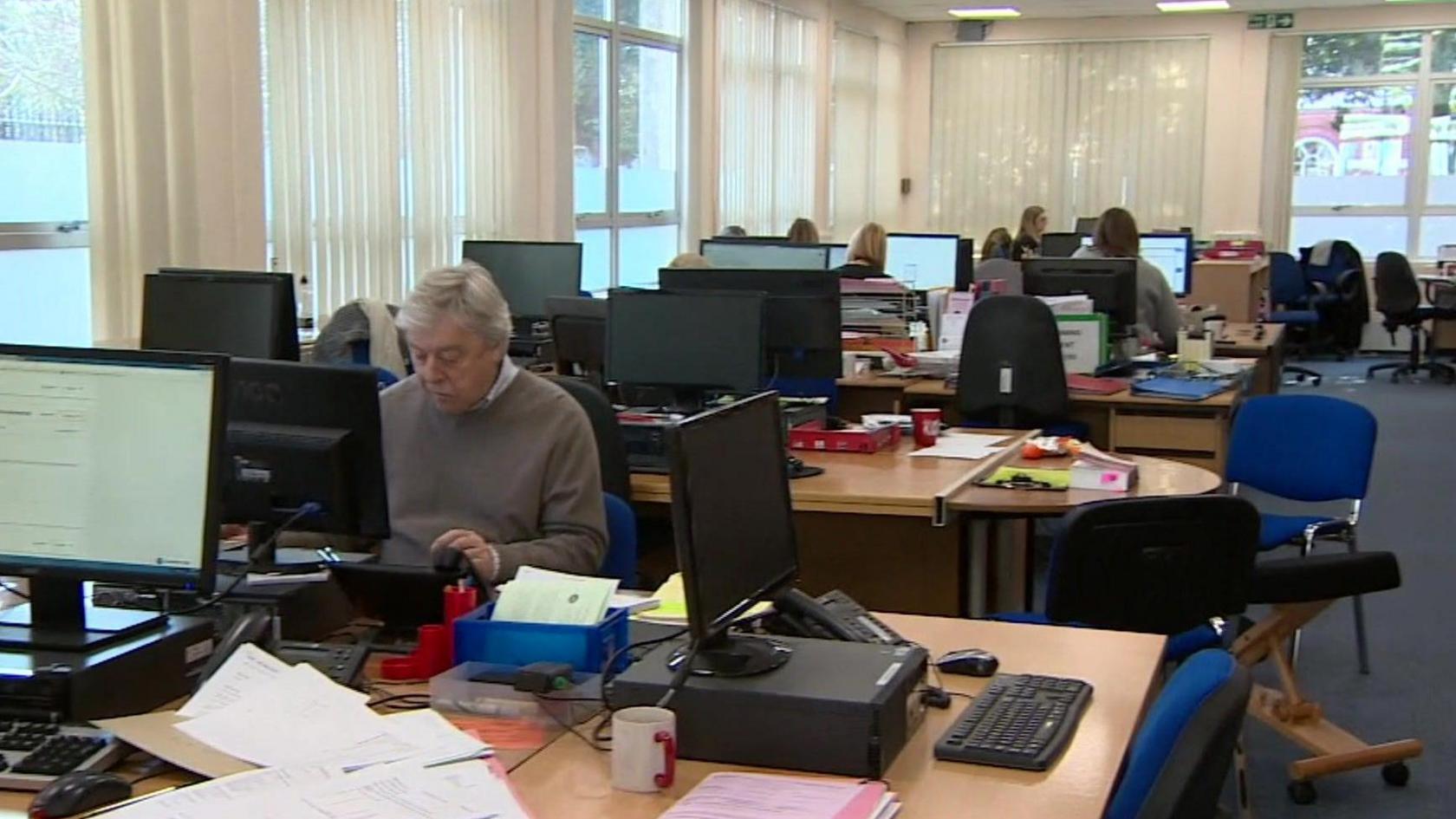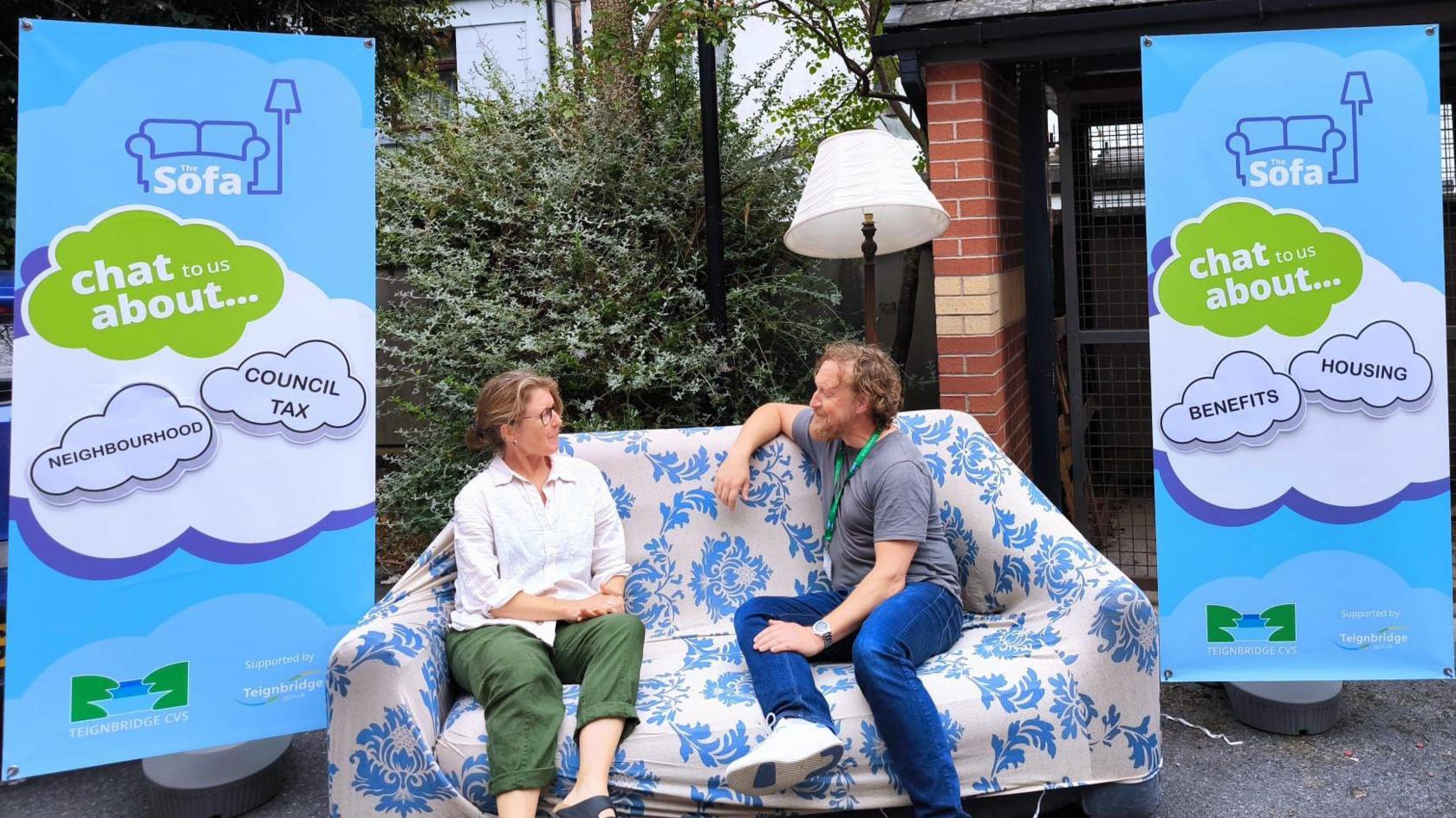Devon Citizens Advice having to turn people away

The charity has struggled to find staff since the Covid-19 pandemic
- Published
One in three people are being turned away from Citizens Advice drop-in centres in parts of Devon because demand is so high, the charity has said.
The number of problems dealt with by the charity during the last six months had increased by 20% in West Devon and 40% in neighbouring Torridge.
Vicki Rowe, regional chief executive officer of Citizens Advice said volunteers, who provided 80% of advice, had dropped from 135 to 70 since the Covid-19 pandemic.
"More employees had been hired to mitigate the shortage of volunteers, but demand is at new levels, with more vulnerable people in society finding it difficult to manage," she said.
Calls not answered
Despite more people being helped, 60% of calls were not answered by the charity because staff and resources were at capacity, according to the Local Democracy Reporting Service.
While seven in 20 people were being turned away from drop-in centres and waiting times for appointments were up to four weeks.
Other than people with emergencies, those who had to be turned away from drop-in centres have been directed to digital services, such as a webchat or email.
The Devon branch of the charity said in September that running costs had to be reduced after Exeter City Council cut funding for its local advice and information service from £200,000 per year to a one-off £75,000 grant.
'Trying to recruit'
Ms Rowe said the borough was better off than some, with 16 volunteers and 11 paid members of staff, and nine additional staff providing organisational support, but the service needed more.
Volunteers were being sought across Devon to give a day a week to the charity, staff said.
"After the pandemic, we lost volunteers who went back to work, wanted to retire or had carers responsibilities," said Ms Rowe.
"We try to recruit anybody who is willing and able, and like to have a variety of ages, including young people."
Follow BBC Devon on X (formerly Twitter), external, Facebook, external and Instagram, external. Send your story ideas to spotlight@bbc.co.uk, external.
Related topics
- Published11 September 2024

- Published21 August 2024
